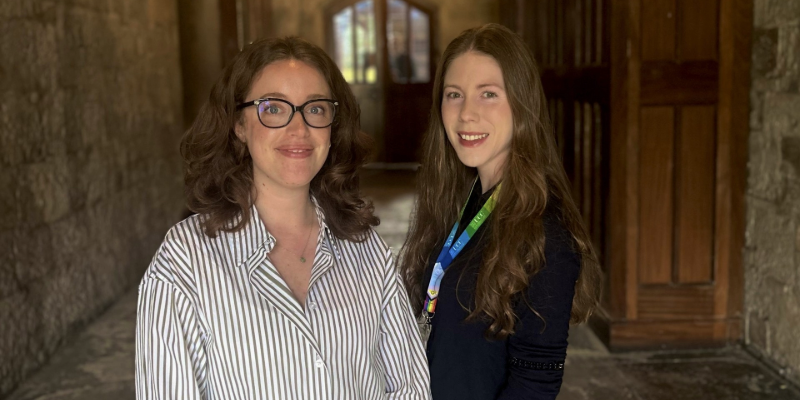In This Section
Landmark study on symptom dismissal and diagnostic delays in women’s health launched

- UCC launches a study on women’s experiences seeking diagnosis for chronic health conditions.
- The study will look at experiences of medical gaslighting, where patients report their symptoms being dismissed or minimised.
- 'You can spend a decade trying to get someone to take you seriously and then spend 3 years on a waiting list.'
A new study seeks to understand the experiences of women in Ireland navigating a diagnosis for chronic health conditions.
Researchers at University College Cork (UCC) want to hear from women experiencing chronic health conditions such as endometriosis, migraine, postural orthostatic tachycardia syndrome (POTS), premenstrual dysphoric disorder (PMDD), and mast cell activation syndrome (MCAS).
Launched today, the research will explore issues including diagnostic delays, patient–doctor interactions, ranging from symptom dismissal to supportive engagement, and how women use symptom-tracking apps to document and share their experiences with healthcare professionals, and responses to that data.
Diagnostic delays and medical gaslighting
Delays in diagnosis are well-documented across women’s health. Internationally, endometriosis takes an average of nine years to diagnose, while POTS can take five. Conditions such as PMDD, MCAS, and less common migraine subtypes remain under-recognised despite their disabling impact. These conditions often overlap with one another, as well as with neurodivergence and connective tissue disorders like Ehlers-Danlos Syndromes, and may emerge or worsen after COVID-19 infection, creating complex healthcare needs that are poorly understood and managed in current clinical practice.
Many patients report feeling disbelieved or having their symptoms minimised, a phenomenon often described as “medical gaslighting.” This contributes to years-long diagnostic delays. The study will examine both negative and positive healthcare experiences, including moments of validation and support.
Irish women’s experiences of diagnosis
“Too often, we hear patients speak about delays in diagnosis, and the barriers that contribute to them, such as symptom dismissal, minimisation, or normalisation. We want to hear about these experiences, as well as good patient–doctor interactions, so that we can learn from both and improve women’s healthcare,” Jenny Cooney-Quane, lead researcher on the project and Research Associate in UCC School of Applied Psychology, said.
The study will also investigate how patients use symptom-tracking apps to record symptoms and identify patterns, and how doctors respond to this patient-generated data in relation to diagnosis, treatment, and communication.
“Digital health transformation in Ireland has the potential to respond meaningfully to historic and contemporary issues in women's health, particularly more accurate diagnosis. However, it is imperative that this innovation is informed by the experiences of women and doesn't take away from existing healthcare provision,” Dr Sarah Foley, Principal Investigator and Lecturer in UCC School of Applied Psychology, said.
“These conditions are deeply under-researched, under-diagnosed, and under-funded. So many of us were told our debilitating, life ruining symptoms were normal. Nothing to be concerned about, just anxiety. You can spend a decade trying to get someone to take you seriously and then spend 3 years on a waiting list to be seen by someone else and still be dismissed. This study is so important and so validating,” a member of the PPI Panel Member said.
The study acknowledges that non-binary individuals and trans men may also be affected by these health conditions, often facing additional diagnostic challenges. The survey is designed to ensure their experiences are represented. In doing so, the research aims to deliver findings that are relevant and meaningful to all groups affected.
Taking part in the study
The survey is now open to participants aged 18 and over, who have a diagnosis of one or more of the listed conditions, and who sought diagnosis in Ireland.
It can be completed online, with the survey taking around 30 minutes or longer if you have multiple conditions.
For details, visit the survey link
If you have queries, contact Jenny Cooney-Quane, Research Associate in UCC School of Applied Psychology, on jennifer.cooney@ucc.ie
This research is funded by Lero, the Research Ireland Centre for Software.
